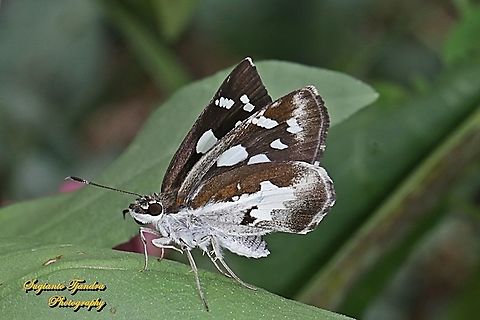
Appearance
Male. Upperside black, the basal half of both wings covered with minute yellowish scales, markings pure white, semi-hyaline. Forewing with a large white spot filling up the end of the cell, two similar conjoined spots outwardly below it extending from beneath vein 4 to the sub-median vein, hardly separated from each other by vein 2; four conjugated sub-apical spots, the uppermost one minute, two similar spots below them nearer the outer margin, a small spot between these and the two large conjoined spots. Hindwing with a very large medial white patch with its margin sinuous all round; abdominal area covered with yellowish hairs. Underside paler. Forewing with the markings as on the upperside. Hindwing with the white medial patch extending to the abdominal margin from near the costa to one-third above the anal angle, the extension suffused with grey, also extending narrowly to the outer margin, double blackish-brown lunular marks, within the white space at the bases of the sub-median nervules. Cilia blackish, alternated with white. Antennae black; palpi, head and body concolorous with the wings, whitish on the underside, legs brown above, whitish beneath.Female like the male, but the spots are larger.— Charles Swinhoe, "Lepidoptera Indica". Vol. X
It is a small butterfly with a wingspan of about 4 to 4.8 cm. It is black with a large white spot on the upperside of the hindwing and several smaller whites spots on the forewing. The underside of its wings is mostly white with brown edges and spots.
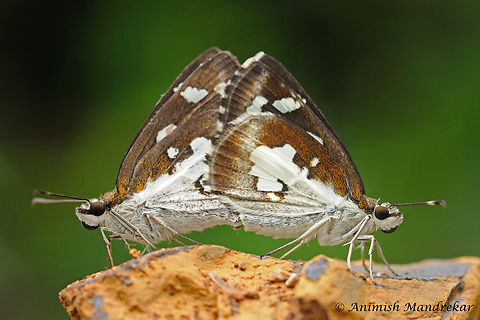
Status
Not rare in India. Rare or very rare in certain parts of its global range. This butterfly is seen chiefly during the monsoon, perhaps due to its larval host plants growing at this time of the year.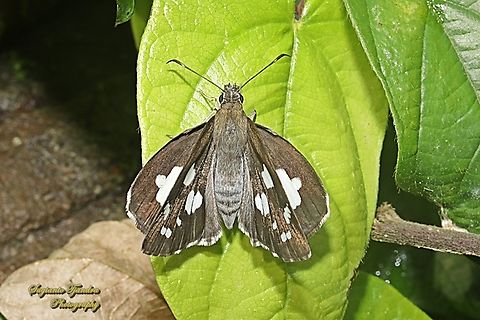
Behavior
The butterflies emerge in February or March and lay eggs before they die. The eggs remain dormant till the rains, that is, usually the month of May, when they hatch. The caterpillars pupate in September and October and the adults emerge four to six months later. In some cases the caterpillars pupate later and in these cases the pupa remain dormant, throughout the dry season, till May when the rains begin.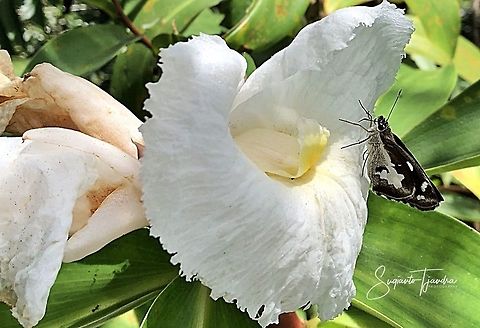
Habitat
The grass demon is to be found in deciduous and semi-evergreen forests. It prefers the edges of open spaces rather than the deep forest shade or open sunlight. It is most abundant in the more open regions of hilly jungle. It is also encountered on the plains at some distance from such terrain. It occurs up to 8,000 feet in the hills of South India and up to 5,000 feet in the Himalayas.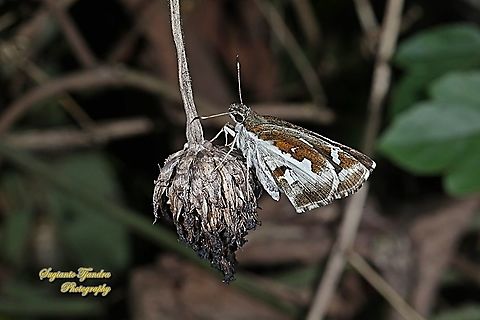
Reproduction
The female normally sits on the underside of the leaf of the host plant and lays a single egg. The egg is reddish and appears smooth and dome shaped. When about to hatch it turns white with a red top.Soon after hatching, the caterpillar does not consume the eggshell completely and it makes itself a spacious cell and hides inside it. The caterpillar is sluggish and comes out to feed only at night. Even when disturbed it is reluctant to leave its cell.The caterpillar is a light uniform leaf green colour with a dark green pulsating line on the back and a relatively small, dark head. The full grown larva has the habit of resting with the first three segments contracted, so as to give a humped appearance. It always lies closely applied to the leaf, by turning over a triangular piece from the edge onto the upper surface over itself. Specific host plants include "Zingiber zerumbet".
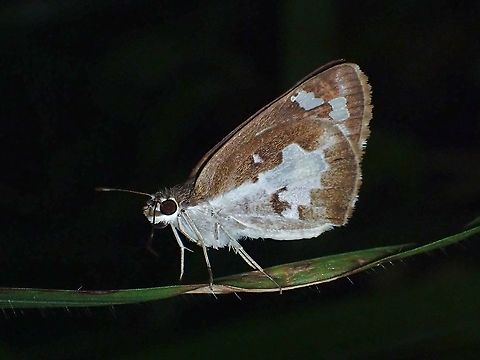
Food
The grass demon feeds on ginger, turmeric, and their relatives "Curcuma aromatica", "Curcuma decipiens", "Hedychium" sp. and other plants of family Sctiaminae. It has also been recorded on "Zingiber" sp. and on grasses.References:
Some text fragments are auto parsed from Wikipedia.